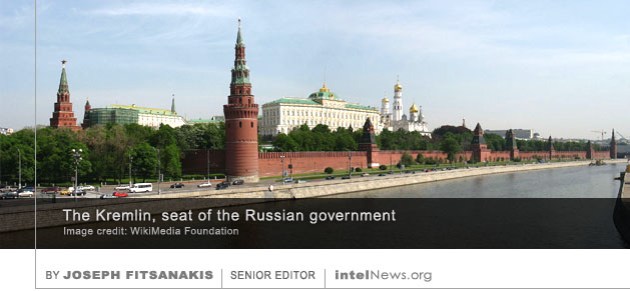Can one ever truly leave the Russian intelligence services? It depends, says expert
June 27, 2022 2 Comments
 RUSSIANS ARE AWARE OF the phrase “there is no such thing as a former chekist”. The term “chekist” dates from the Bolshevik-era All-Russian Extraordinary Commission (VChK, pronounced “cheka”), which was formed in 1917 as the first Soviet-era state security agency. By the 1940s, intelligence posts had come to be seen as life-long relationships between chekists and the Soviet government, which continued even after one’s retirement. In the words of Joseph Stalin, “[a] chekist has only two paths: toward promotion or to prison”. Is that still the case? It depends on who you ask, says Dr. Kevin Riehle, a 30-year counterintelligence veteran with the United States government, who now teaches at the University of Mississippi’s Center for Intelligence and Security Studies.
RUSSIANS ARE AWARE OF the phrase “there is no such thing as a former chekist”. The term “chekist” dates from the Bolshevik-era All-Russian Extraordinary Commission (VChK, pronounced “cheka”), which was formed in 1917 as the first Soviet-era state security agency. By the 1940s, intelligence posts had come to be seen as life-long relationships between chekists and the Soviet government, which continued even after one’s retirement. In the words of Joseph Stalin, “[a] chekist has only two paths: toward promotion or to prison”. Is that still the case? It depends on who you ask, says Dr. Kevin Riehle, a 30-year counterintelligence veteran with the United States government, who now teaches at the University of Mississippi’s Center for Intelligence and Security Studies.
Riehle, author of Soviet Defectors: Revelations of Renegade Intelligence Officers, 1924-1954 (Edinburgh University Press, 2022), discusses this topic in an article published earlier this month in The International Journal of Intelligence and CounterIntelligence. The article, entitled “Post-KGB Lives: Is There Such a Thing as a Former Chekist?”, examines this concept  with reference to three Russian intelligence agencies, all of which trace their origins to the Soviet-era Cheka —namely the Foreign Intelligence Service (SVR), the Federal Security Service (FSB), and the Federal Protective Service (FSO).
with reference to three Russian intelligence agencies, all of which trace their origins to the Soviet-era Cheka —namely the Foreign Intelligence Service (SVR), the Federal Security Service (FSB), and the Federal Protective Service (FSO).
The author explains that the history of chekist organizations is replete with examples of officers, especially those with military backgrounds, who “received post-separation jobs with no apparent obligation to continue cooperation with the [intelligence] service[s]”. However, since the rise of Vladimir Putin to the Russian presidency, the Kremlin has imposed tight restrictions on the post-retirement activities of former intelligence personnel. As of 2019, such former personnel are not permitted to leave Russia for any reason for five years following their retirement. There is another category of Putin-era intelligence retirees, who enter careers in business or politics. Many of them maintain their intelligence contacts and “continue to fulfil service requirements” while displaying a sense of pride for their government service. This often results in business or political advantages, notes Riehle.
On the opposite end of that spectrum are defectors. Historically, of the 150 known Soviet and Russian defectors who sought protection abroad since World War II, most fled to the United States. Often these individuals are sentenced to death in absentia. State-sponsored assassinations of these defectors were not infrequent during the early stages of the Cold War. However, they became extremely rare after 1961, as a result of the sensational defections to the West of two Soviet government assassins, Nikolay Khokhlov and Bogdan Stashynsky. Riehle explains that, in the Putin era, cases such as those of Aleksandr Litvinenko and Sergey Skripal have signaled the end of that lull in state-sponsored external assassinations of Russian defectors.
Arguably the rarest category of former —or allegedly former— chekists are false defectors. As early as 1946, some Western intelligence agencies cautioned about the “need to  prove defectors’ genuineness before trusting […] renegade members of Soviet missions”, says Riehle. He also notes that Cold War-era defectors to the United States, such as Anatoliy Golitsyn, Olga Farmakovskaya, Yuriy Nosenko, and others, were often treated with skepticism by American intelligence officials. It would be interesting to consider whether this attitude has changed significantly in recent years.
prove defectors’ genuineness before trusting […] renegade members of Soviet missions”, says Riehle. He also notes that Cold War-era defectors to the United States, such as Anatoliy Golitsyn, Olga Farmakovskaya, Yuriy Nosenko, and others, were often treated with skepticism by American intelligence officials. It would be interesting to consider whether this attitude has changed significantly in recent years.
In short, the answer to question of “is there such thing as a former chekist” has multiple answers, according to Riehle. He identifies four categories of former chekists, namely: legitimate/genuine, i.e. those who leave with no negative ramifications; legitimate/deceptive, who leave the service but remain connected to their former employer; illegitimate/genuine, who are actual defectors or arrested officers; and finally illegitimate/deceptive, who are essentially false defectors.
► Author: Joseph Fitsanakis | Date: 27 June 2022 | Permalink







For many, nowadays it must be the equivalent of psychological life imprisonment.
Not Russians, but some say the other day “some ex-intelligence officers retain suspicious intelligence mindsets..maybe permanently…however much they want to shake it off”.